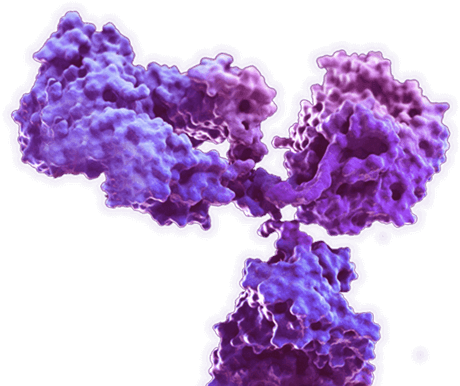AibGenesis™ Mouse Anti-AGO4 Antibody (CBMOAB-1844FYC)
Cat: CBMOAB-1844FYC

Certificate of Analysis Lookup
To download a Certificate of Analysis, please enter a lot number in the search box below. Note: Certificate of Analysis not available for kit components.
Lot Number
To download a Certificate of Analysis, please enter a lot number in the search box below. Note: Certificate of Analysis not available for kit components.
Lot Number
- Product List
- Specifications
- Application Information
- Target
- Reference
| Sub Cat | Clonality | Species Reactivity | Application | Clone | Conjugate | Size | |
| CBMOAB-1844FYC | Monoclonal | WB, ELISA | MO1844FC | 100 µg | |||
| CBMOAB-65211FYA | Monoclonal | Zebrafish (Danio rerio) | WB, ELISA | MO65211FYA | 100 µg | ||
| MO-AB-06269Y | Monoclonal | O. anatinus (Ornithorhynchus anatinus) | WB, ELISA | MO06269Y | 100 µg | ||
| MO-AB-07115Y | Monoclonal | Rabbit (Oryctolagus cuniculus) | WB, ELISA | MO07115Y | 100 µg | ||
| MO-AB-14134Y | Monoclonal | Sheep (Ovis aries) | WB, ELISA | MO14134Y | 100 µg | ||
| MO-AB-15605W | Monoclonal | Chimpanzee (Pan troglodytes) | WB, ELISA | MO15605W | 100 µg | ||
| MO-AB-34347W | Monoclonal | Ferret (Mustela Putorius Furo) | WB, ELISA | MO34347W | 100 µg | ||
| MO-AB-43608W | Monoclonal | Horse (Equus caballus) | WB, ELISA | MO43608W | 100 µg | ||
| MOFAB-660W | Monoclonal | Arabidopsis | WB, IHC | 100 µg | |||
| MO-DKB-0028RA | Polyclonal | ICC, IP, WB | 50 µg | ||||
| MO-DKB-01697W | Polyclonal | A. thaliana (Arabidopsis thaliana) | WB | 100 µg |
Specifications
| Host species | Mouse (Mus musculus) |
| Species Reactivity | A. thaliana (Arabidopsis thaliana), A. thaliana (Arabidopsis thaliana); H. orientalis (Hyacinthus orientalis), Arabidopsis, Chimpanzee (Pan troglodytes), Ferret (Mustela Putorius Furo), Horse (Equus caballus), O. anatinus (Ornithorhynchus anatinus), Rabbit (Oryctolagus cuniculus), Sheep (Ovis aries), Zebrafish (Danio rerio) |
| Clone | MO1844FC |
| Specificity | This antibody binds to Arabidopsis AGO4. |
| Format | Liquid or Lyophilized |
| Storage | Store at 4°C: short-term (1-2weeks) Store at -20°C: long-term and future use |
| Purity | > 90% was determined by SDS-PAGE |
| Purification | Purified with Protein A or G affinity chromatography |
| Cellular Localization | Nucleus |
Application Information
| Application | WB, ELISA |
| Application Notes | ELISA: 1:1000-1:3000 Other applications are to be developed. The optimal dilution should be determined by the end user. |
Target
| Product Overview | Mouse Anti-Arabidopsis AGO4 Antibody is a mouse antibody against AGO4. It can be used for AGO4 detection in Western Blot, Enzyme-Linked Immunosorbent Assay. |
| Alternative Names | Argonaute 4, RISC Catalytic Component; Eukaryotic Translation Initiation Factor 2C, 4; Argonaute RISC Catalytic Component 4; EIF2C4; Eukaryotic Translation Initiation Factor 2C 4; Protein Argonaute-4; Argonaute 4 |
| UniProt ID | Q9ZVD5 |
| Protein Refseq | The length of the protein is 924 amino acids long. The sequence is show below: MDSTNGNGADLESANGANGSGVTEALPPPPPVIPPNVEPVRVKTELAEKKGPVRVPMARKGFGTRGQKIPLLTNHFKVDVANLQGHFFHYSVALFYDDGRPVEQKGVGRKILDKVHQTYHSDLDGKEFAYDGEKTLFTYGALPSNKMDFSVVLEEVSATRANGNGSPNGNESPSDGDRKRLRRPNRSKNFRVEISYAAKIPLQALANAMRGQESENSQEAIRVLDIILRQHAARQGCLLVRQSFFHNDPTNCEPVGGNILGCRGFHSSFRTTQGGMSLNMDVTTTMIIKPGPVVDFLIANQNARDPYSIDWSKAKRTLKNLRVKVSPSGQEFKITGLSDKPCREQTFELKKRNPNENGEFETTEVTVADYFRDTRHIDLQYSADLPCINVGKPKRPTYIPLELCALVPLQRYTKALTTFQRSALVEKSRQKPQERMTVLSKALKVSNYDAEPLLRSCGISISSNFTQVEGRVLPAPKLKMGCGSETFPRNGRWNFNNKEFVEPTKIQRWVVVNFSARCNVRQVVDDLIKIGGSKGIEIASPFQVFEEGNQFRRAPPMIRVENMFKDIQSKLPGVPQFILCVLPDKKNSDLYGPWKKKNLTEFGIVTQCMAPTRQPNDQYLTNLLLKINAKLGGLNSMLSVERTPAFTVISKVPTIILGMDVSHGSPGQSDVPSIAAVVSSREWPLISKYRASVRTQPSKAEMIESLVKKNGTEDDGIIKELLVDFYTSSNKRKPEHIIIFRDGVSESQFNQVLNIELDQIIEACKLLDANWNPKFLLLVAQKNHHTKFFQPTSPENVPPGTIIDNKICHPKNNDFYLCAHAGMIGTTRPTHYHVLYDEIGFSADELQELVHSLSYVYQRSTSAISVVAPICYAHLAAAQLGTFMKFEDQSETSSSHGGITAPGPISVAQLPRLKDNVANSMFFC. |
Reference
| Reference | 1. Baumberger, N., & Baulcombe, D. C. (2005). Arabidopsis ARGONAUTE1 is an RNA Slicer that selectively recruits microRNAs and short interfering RNAs. Proceedings of the National Academy of Sciences, 102(33), 11928-11933. 2. Ebhardt, H. A., Tsang, H. H., Dai, D. C., Liu, Y., Bostan, B., & Fahlman, R. P. (2009). Meta-analysis of small RNA-sequencing errors reveals ubiquitous post-transcriptional RNA modifications. Nucleic acids research, 37(8), 2461-2470. |
For Research Use Only | Not For Clinical Use.
Online Inquiry

